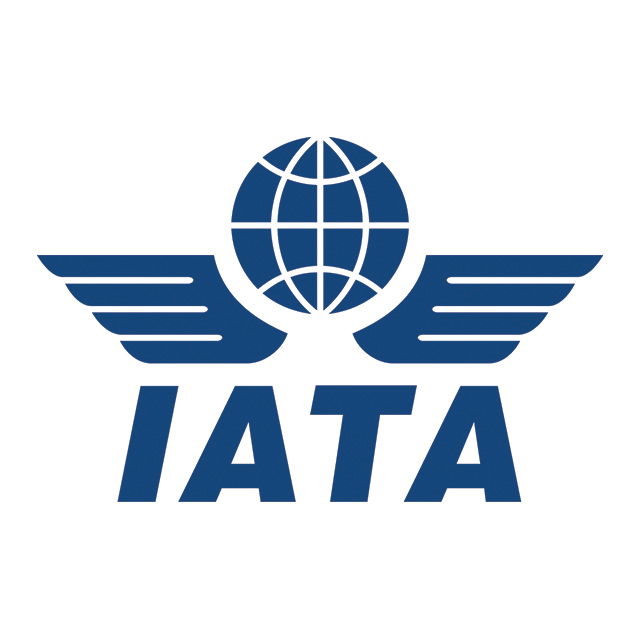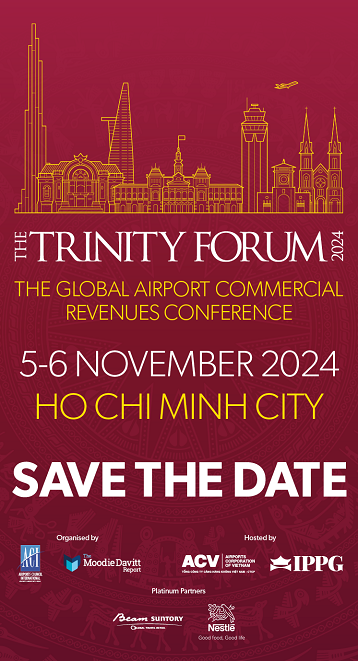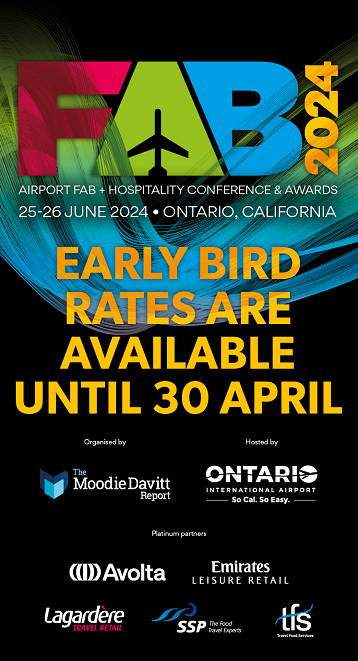Swiss research agency m1nd-set, which specialises in the travel retail sector, works closely with the Montreal-based International Air Transport Association (IATA) to provide robust, data-driven information. IATA Director Travel Intelligence Charles de Gheldere and m1nd-set CEO and owner Peter Mohn spoke recently with The Moodie Davitt Report Chairman Martin Moodie about how data is the new oil of the industry, and the opportunities that presents.
Martin Moodie: Charles, tell us about the partnership with m1nd-set and how you aim to combine your efforts, and your data, for the benefit of the travel retail community?

Charles de Gheldere (CdG): We have been working with m1nd-set for quite a few years on various data products. The latest product that we developed together is for travel retail and we call it a nationality traffic product. It leverages the airline ticketing data that IATA (International Air Transport Association) has access to through our selling activities between travel agents and airlines.
We combined this with many other data sources, such as government and census data, and other airline data sources we have. We have a team of statisticians that have developed a methodology to turn ticketing data and those other data sources into traffic of nationalities per airport and per terminal – both in the past and in the future using short-term and long-term forecasts.
The short-term forecast is based on airline schedule data. The long-term forecast is based on a methodology that the University of Oxford Economics Department has developed and we’ve been partnering with them for many years. It’s a new product that we’ve developed together for this industry.

They say that ‘data is the new oil’. IATA is being more active in the data world because data is changing our industry. Last year we launched an aviation data symposium in Miami in November. The second will take place in Berlin in June [19-20]. Separate tracks focus on passengers, sales and distribution data. We have tracks focusing on safety and operations data, airfreight data, technology and artificial intelligence.
What’s the attraction of the travel retail sector for you?
CdG: We’re always interested in increasing our relevance. Data and technology is the future. In the past, we’ve been very active in publishing our standards and in offering training and consulting activities, but that’s not where the future is. We’re really investing a lot in data and technology. We try to cover the whole value chain and not limit ourselves to solutions for airlines. We have solutions for airports, an industry for which we hadn’t developed any data products.
With m1nd-set we saw that there was an opportunity. We realised that existing products in the market had some limitations because they were using data sources that were not complete. M1nd-set has a lot of experience in this market and helped us develop something that was, at least we think, a lot more accurate than the other data products.
Peter Mohn (PM): We have the ticketing data not only from travel agents but also those sold directly by airlines through their website or other meta-search engines. Today more than half of airline tickets are not sold through travel agencies.
Many airports conduct surveys themselves. They may interview a few thousand travellers per year and based on that they then estimate nationalities. This is not as accurate, of course, as if you have the real ticket data. There is also a certain demographic that book directly with airlines, which other data sources can be missing out on if they base data just on GDS. And that’s only tickets sold via travel agencies. That’s less than half of the market.
And, obviously, a diminishing percentage.
PM: There is also a certain demographic profile of people who only book directly with airlines. For example, I only book directly with airlines. So they’re missing out on a certain kind of people if you don’t include the people who deal directly with airlines.
Charles, tell us more about your role at IATA and your data solutions for the travel market.

CdG: I’m responsible for the portfolio of various data solutions. That’s a separate department in IATA that takes care of relationships with various industry bodies, lobbying, etc. I manage a portfolio called Travel Intelligence, which is a group of products and services for the industry. These are all focused on data and digital content, and sometimes are supported by a training module or consulting activities.
We have data solutions for airlines, the travel and tourism industry, destination marketing organisations – basically any industry supplier. In terms of data in some cases it is reference data, such as information on taxes and charges that you can find on the ticket. Sometimes it’s codes. And sometimes it’s business intelligence. We provide insight. Where is the demand? What are the latest trends in terms of traffic? It’s a variety of data products for the entire industry.
A separate division at IATA handles airport solutions, such as cargo. We are more focused on airlines and passengers – the whole experience from the travel agency to the reservation system, to other various suppliers.
What kind of data insight do you have on particular nationalities, such as the Chinese who are clearly very important to this industry?
CdG: We have a depth of data on Chinese travellers because our information starts from the ticket. We have access to the majority of airline tickets purchased by Chinese nationals through our different sources. We have other Chinese carriers that provide tickets to IATA on a daily basis. We have data on tickets that is captured through our settlement activities. On the ticket you see the full itinerary, the travel period, where it was purchased and the distribution channel used to sell the tickets. There’s a lot of data there. When you combine this with other data that we have on China we get pretty detailed and accurate insight on Chinese travellers.

For example, where they go and how long they stay, down to airport, terminal and frequency. When you combine this further with travel insight with the data m1nd-set has on purchase behaviour at airports, that’s when it becomes even more interesting. It’s all about data integration. There are so many sources that it’s only when you combine them that you create value. If you take them in isolation they all have gaps. The data integration part is a challenge.
What are the key drivers and indicators of how your forecasting model works?
CdG: A short-term forecast is based on facts such as how airlines plan their flights for the next 12 months. That is information that they publish and refresh each month. We use that and do some calibration based on the latest load factor trends. The capacity that they put out there is one thing but the plane might be full or half-full. Our short-term forecast is really the combination of the load factor insights that we have and the capacity that they are planning for the next 12 months.
The long-term forecast is based on a different methodology that was developed by the University of Oxford Economics Department. It looks at various drivers including GDP. Our long-term forecast is used by all of the big players in this industry.
What does your crystal ball tell you about the future of travel?
CdG: Last year we’ve seen probably the best passenger traffic growth that we’ve seen in ten years. It was close to +8% growth in international passengers. This outperforms the average for past ten years of around +5.5%. Whether we are going to keep this up for 2018-2019 is perhaps too optimistic.













